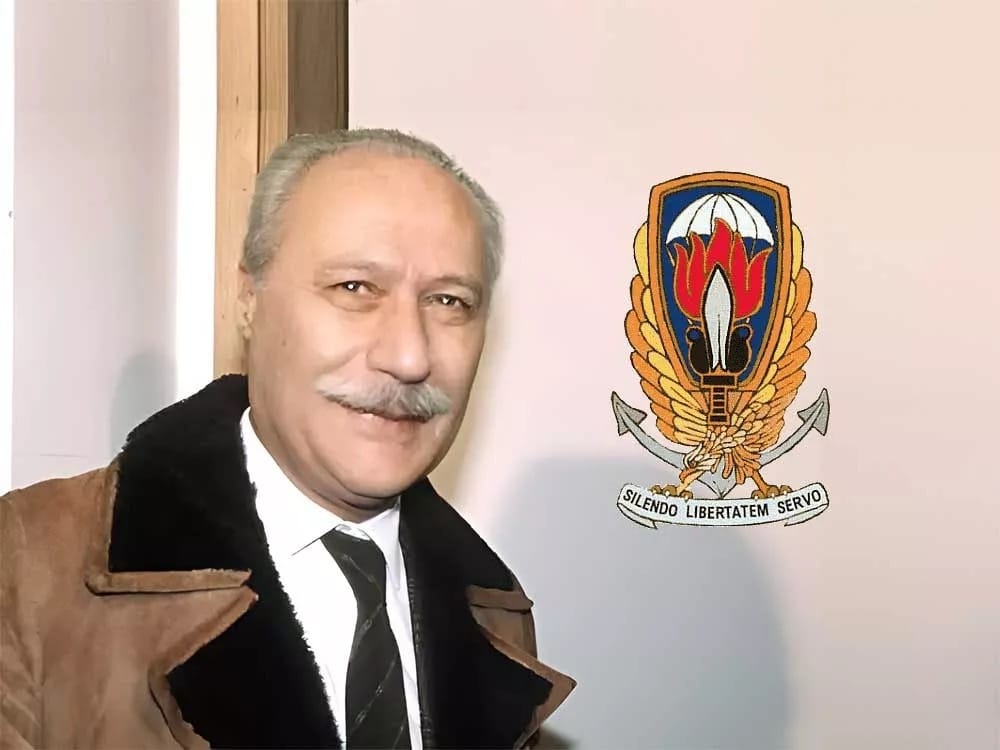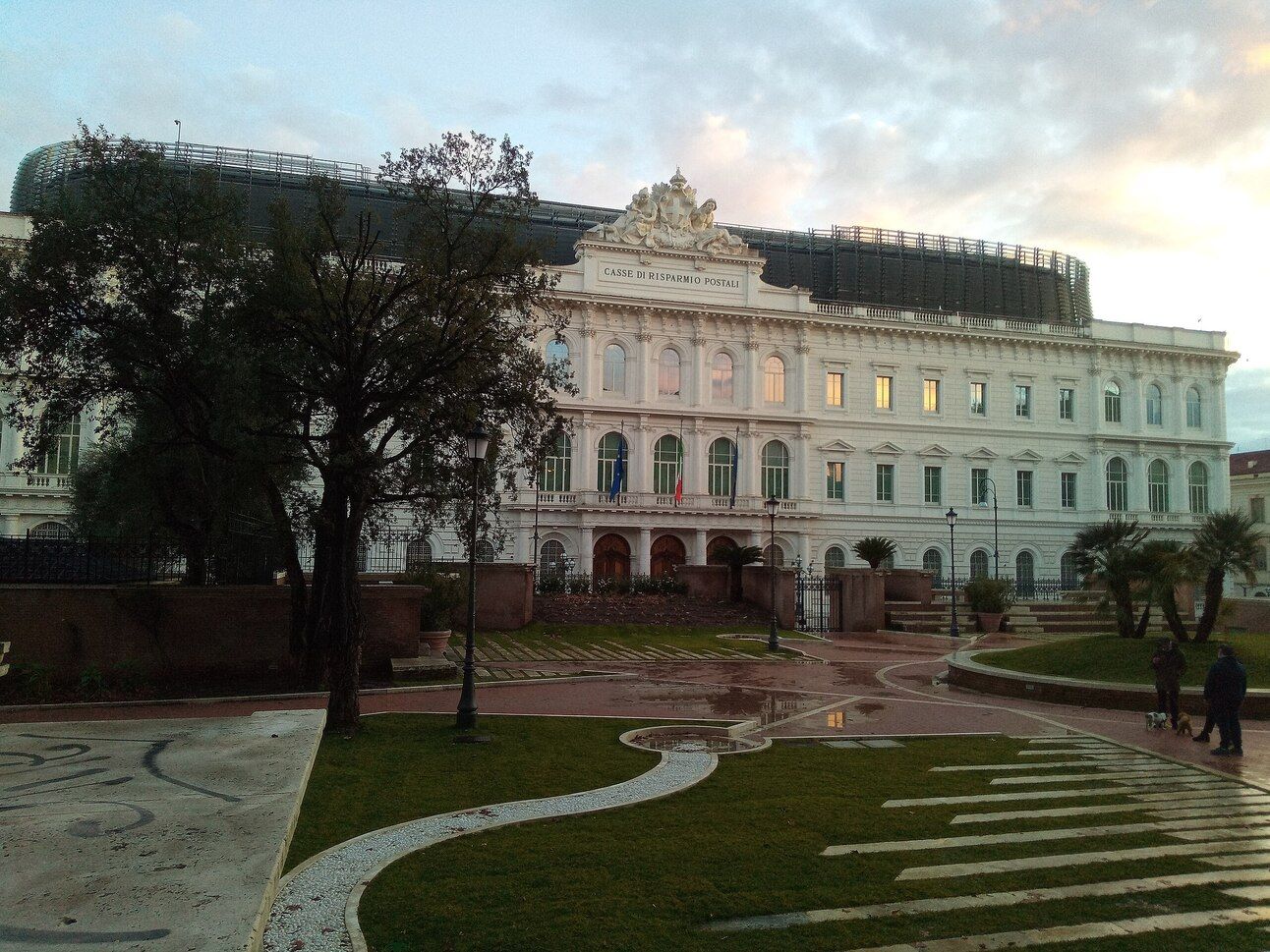- Debrief - The undercover dispatch
- Posts
- The Italian Government Grants Intelligence Agencies Power to Run Undercover Terror Cells
The Italian Government Grants Intelligence Agencies Power to Run Undercover Terror Cells
A contentious provision in Italy’s new Security Decree raises significant ethical and legal concerns. Article 31 of the decree, recently passed into law by the Meloni government, allows Italian intelligence agencies to run terrorist organizations undercover and even use explosives, without facing criminal liability. Yes, it’s written explicitly in the law.

This issue of Debrief delves into the risks and blurred lines of undercover operations—especially when it’s governments, not journalists, who are going undercover. In Italy, the Security Decree has just been converted into law, and its implications are staggering.
Article 31 essentially authorizes intelligence agents to infiltrate, direct, and even arm terror groups in the name of national security. But it also forces us to confront a difficult question: can a democratic state pretend to be a terrorist in order to protect its citizens from terrorism? And what happened the last time a government tried this?
This issue was written by Luigi and edited by Sacha.
In This Issue of Debrief:
When the State Dressed as the Enemy
Northeastern Italy, late 1960s. The country is roiled by social unrest, labor strikes, and student protests. But far from the crowds and demonstrations, a different kind of response is taking shape. It’s called Operation Dolphin—a covert plan conceived by the General Staff of SIFAR, Italy’s military intelligence service at the time. The goal: to field-test the secret Gladio cells, a clandestine paramilitary network created in 1956 through a joint arrangement between the CIA and Italian intelligence. Officially, Gladio was established to resist a potential Soviet invasion. In practice, it aimed to contain the rise of communism in Italy.
The so-called “gladiators”—as Gladio operatives were known—were trained in explosives, sabotage, infiltration, and escape techniques. Many were recruited from neo-fascist circles. General Paolo Inzerilli, who led the organization for years, once said that a true gladiator had to “learn not to be a mere recruit, but the leader of a guerrilla band.” In wartime, Gladio was to function as a militia. In peacetime, it was tasked with undermining communist activity.

Paolo Inzerilli, the general who led Gladio
In 1965, Operation Dolphin turned theory into practice. Undercover agents were ordered to map out party offices, monitor cultural and sports centers, spy on rallies and political gatherings, collect compromising information on leftist activists, and profile members of the Slovenian minority. But the intelligence-gathering phase was only the beginning. What followed was an active destabilization campaign: provoking unrest, issuing threats, sabotaging protests, and staging “minor incidents to awaken public consciousness.” Among the instructions in the plan, one stands out for its chilling clarity: “acts of terrorism to be blamed on the insurgents.”
A few years later, that script began to unfold in real life. As journalist Ugo Dinello also points out in his book La via delle armi (Laterza, 2022), between the late 1960s and early 1980s, five of the six deadliest political massacres in Italy occurred—or were orchestrated—in the Northeast. All of them involved men, means, and methods that would later be revealed as part of the same strategy. And in every instance, blame was initially pinned on anarchists or far-left extremists. Only after decades of investigations, cover-ups, and institutional silence did the judiciary manage to uncover the involvement of elements within the state—a hard-won legal truth that emerged after years of deception.
Today, fifty years on, a new law threatens to make those same actions unprosecutable in the future. With Article 31 of the Security Decree, the Italian state grants itself the authority to carry out undercover operations, run fictitious terrorist groups, and commit serious crimes in the name of national security—without legal consequences. In doing so, it opens the door for these acts to remain forever beyond the reach of justice.
What Article 31 Really Says
Enacted into law on June 9, 2025, the Security Decree (Law 80/2025) has been described by many observers as one of the harshest public order measures introduced in recent years. It creates 14 new criminal offenses, 9 sentencing enhancements, expands police powers, and imposes tougher rules on minors, migrants, and protesters. Alongside measures targeting youth gangs and road blockades, it also significantly strengthens the state’s intelligence capabilities.
At the heart of the controversy is Article 31, which expands the so-called functional guarantees granted to intelligence agents. In essence, with authorization from the Prime Minister or a delegated authority, an undercover agent can no longer be held criminally liable for committing certain crimes—if doing so is deemed essential to the security of the Republic.
What’s new in Article 31 is the extension of this legal shield to cover the organization and leadership of terrorist or subversive groups. And it doesn’t stop there: it includes extremely serious crimes such as the purchase, possession, and manufacture of explosives, the distribution of instructions on how to make them, participation in or support for subversive or terrorist organizations, training for terrorist purposes, financing of terrorist activities, incitement to or glorification of crimes against the State or against humanity, and participation in armed groups.
The Meloni government defends Article 31 by arguing that preventing terrorist attacks requires deep infiltration into terrorist organizations. Critical intelligence—on operational plans, logistics, and attack strategies—can’t be gathered from the margins; it’s accessible only from the top. The only way to reach that level is by climbing the internal ranks of the group. But that climb inevitably involves contributing to the organization’s activities—sometimes even promoting or directing them. Stopping an infiltrator too soon, the government argues, could mean losing the chance to dismantle an entire terror network.

Unified headquarters of the Italian intelligence services
Several legal experts have expressed deep concern over the idea that the crime of organizing or leading a terrorist group could be excused under the new law. The core of the criticism lies in the fear that this legal exemption could extend far beyond its intended purpose—undercover infiltration—effectively legitimizing actions that brush up against, or outright cross, the boundaries of legality. Such a shift could pave the way for opaque operations, difficult to monitor or regulate, and potentially at odds with the very interests of the state.
What results is a dangerous exception to the rule of law—one that tips the delicate balance between national security and fundamental civil liberties. And it’s left entirely to the operational discretion of intelligence agencies. This is also the view of Roberto Scarpinato, former Chief Prosecutor of Palermo and now a senator for the Five Star Movement:
“This provision marks an unacceptable escalation: from covert infiltration to the legal authorization of agent provocateurs committing extremely serious crimes. What’s truly alarming is the government’s refusal to allow meaningful democratic oversight by COPASIR [Parliamentary Committee for the Intelligence Services], especially given the tragic lessons of the past—when rogue elements within the secret services destabilized the country.”
The reaction from families of terrorism victims has been no less forceful. In January, Paolo Bolognesi, president of the association representing the families of the Bologna massacre victims, issued a stark warning:
“The Security Decree is trying to legalize what we’ve always called rogue intelligence. The history of the Bologna bombing shows that the attack couldn’t have happened without help from the secret services. That’s the crucial point—not only were the terrorists shielded, they were enabled. And from there came the cover-ups, many of which were set in motion even before the attack.”
Fake Journalists, Phantom Students: The Latest “Undercover” Operations by Italian Police
In recent months, as public debate around Article 31 cautiously unfolded, two incidents emerged that offer a concrete glimpse into the kind of scenarios this new law might make increasingly common.
In Catania, Sicily, during three demonstrations in March 2025, a State Police officer infiltrated protest marches posing as a journalist from the newspaper La Sicilia. He carried a video camera and prominently displayed the outlet’s logo, blending in with the crowd while filming pro-Palestinian activists and demonstrators. The Sicilian Press Association condemned the operation as “inappropriate” and urged the local police headquarters to provide an explanation.
Shortly after, a second case came to light. In Naples, a 21-year-old police officer—formally assigned to the Central Directorate for Crime Prevention—spent nearly ten months undercover within the leftist movement Potere al Popolo, pretending to be an out-of-town university student. He attended meetings, mobilizations, and activist events, posing as a radical grassroots member. Qualified sources later downplayed the case, suggesting it may have been a youthful misstep rather than an officially sanctioned mission. But his file and deployment suggest otherwise.
To be clear, these two cases are unrelated to what the new law explicitly permits: they don’t involve intelligence agencies or counterterrorism operations. Still, they reflect a troubling trend—the growing normalization of undercover tactics by law enforcement, often under vague pretenses and in increasingly questionable contexts.
Against a State That Manufactures Its Own Enemies
When responding to Meloni Youth—the undercover investigation my colleagues and I conducted into the youth wing of her party—Giorgia Meloni dismissed the method as a “tactic fit for a dictatorship.” But this is precisely the flip side of the coin: staging a threat in order to legitimize power.
We’ve already seen what happens when the state pretends to be a terrorist in order to protect us from terrorism. And it’s a scenario we’re not eager to see repeated.
Until the next Debrief,
Sacha & Luigi.
If you have suggestions, questions, tips (or insults), drop us a line at::
👉 [email protected]
If you enjoyed this newsletter, pass it along to your friends using this link:
👉 https://debrief-newsletter.beehiiv.com/
Follow us on Instagram, occasionally we'll upload content different from the newsletter:
👉 https://www.instagram.com/debrief_undercover/
We've also launched a podcast featuring interviews with the authors of memorable undercover investigations:
👉 https://open.spotify.com/show
And if that's still not enough, join our Telegram channel, where we can keep the conversation going:
👉 https://t.me/debrief_undercover
Reply